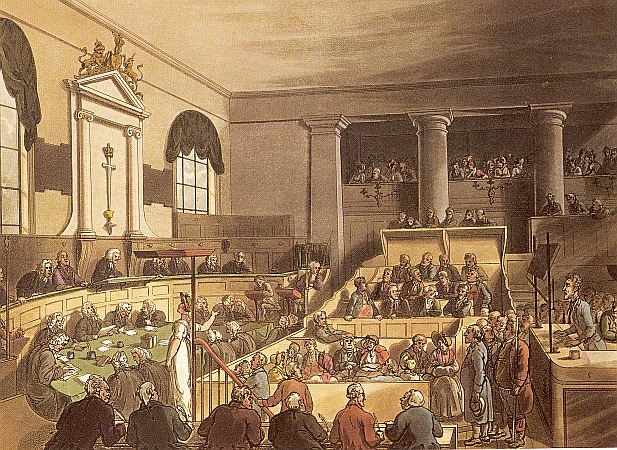I, like many others, am fascinated by criminal trials. I can pretend that my interest is professional, that I need to read the details of the latest trial in order to keep up to date with the law, or that my interest in notable historical trials is linked to my interest in the history of the criminal law, but deep down there is a desire to hear the stories of crime, of how people live, or in the expectation or hope that there will be some coup de theatre in the trial itself.
Of course I realise that most trials are not like this; more, that even those trials which are supposed to be dramatic are mainly rather dull, as a succession of witnesses are called to testify about mundane facts, and the standard of advocacy rarely lives up to the heights of the great dramatic cross-examinations of fiction. But I keep coming back for more, which begs the question of what it is that we expect from trials, or even what they are supposed to do.
I ask this question because the Justice Secretary announced last week that he was proposing to relax the restrictions on the filming of criminal trials, specifically to allow the filming of sentencing. http://www.guardian.co.uk/law/2011/sep/06/ban-filming-courts-to-be-lifted?INTCMP=SRCH
This inevitably raises more questions than it answers. The justification offered for this is that it will improve transparency in the criminal justice system, making public the reasons for sentences, and will thereby bolster public confidence. But as has been pointed out, this seems very one-sided: we only hear the judicial reasons for the sentence, and there is no legal argument, no balancing of this with evidence for the defendant. While I recognise that the filming of witnesses, defendants and other participants raises complex legal issues - witness the difficulties run into by a TV production company in attempting to film a Scottish trial - the question goes beyond such technicalities. This approach is consistent with historical attempts to control the message of the court process, through symbols, costumes, architecture and so on. But there are (at least) two significant problems. First, from the point of view of TV, it may just not be very entertaining. We are used to our TV with a bit of glamour and excitement. Even so called 'reality TV' is staged and edited to make viewers come back for more. But seeing one sentencing hearing on TV may be very much like any other, in the absence of more detail or argument, and so public interest may be low. Second, trials are a moment of public reckoning, as the report suggests, but this is not only about the moment of the public communication of disapproval. Trials are a process of communication, of public calling to account, but this crucially requires space for answering. It is not just that the person accused is answerable, but they should be given opportunity to contest the charges and the evidence. Showing a distorted picture of this process will not enhance public understanding of criminal justice because its own understanding of the process is flawed.
This is a blog about the history, theory and practice of the criminal law. I shall write about books, cases, trials, novels that catch my interest, and even occasionally about current events. My aim is not comment on current caselaw or issues in criminal justice, but to rather to develop a more oblique critique of the law.
Oblique intent
Why the name? Well criminal law afficionados will recognise the phrase 'oblique intent' as referring to a problem of mens rea:can a person who intends to do x (such as setting fire to a building to scare the occupants) also be said to have an intention to kill if one of the occupants dies? This is a problem that has consumed an inordinate amount of time in the appeal courts and in the legal journals, and can be taken to represent a certain kind of approach to legal theory. My approach is intended to be more oblique to this mainstream approach, and thus to raise different kinds of questions and issues. Hence the name.

I suppose the risk is only the most sensational trials get televised and so the real adjudicator becomes not the judge but the media company with the power to reach millions of households. Or does the ruling open up the possibility that documentaries (which are more likely to be able to capture the process from crime to its ultimate judicial outcome) may be more easily made about the criminal process in England and Wales?
ReplyDelete